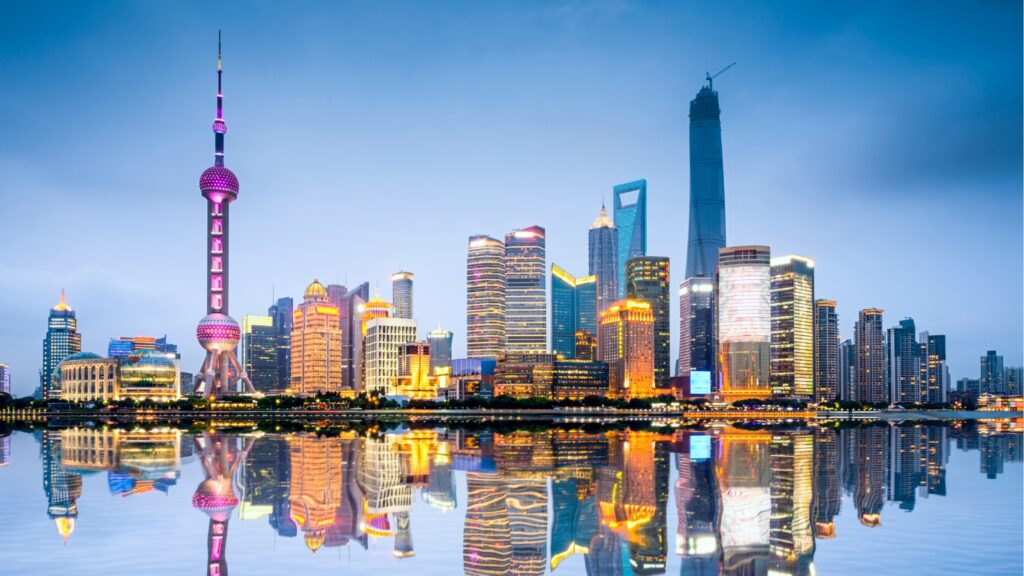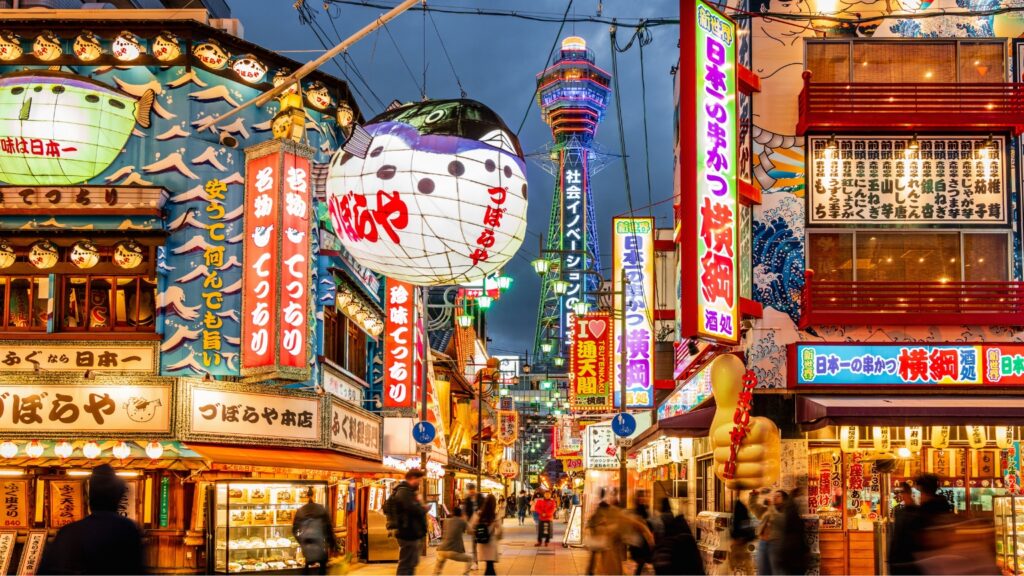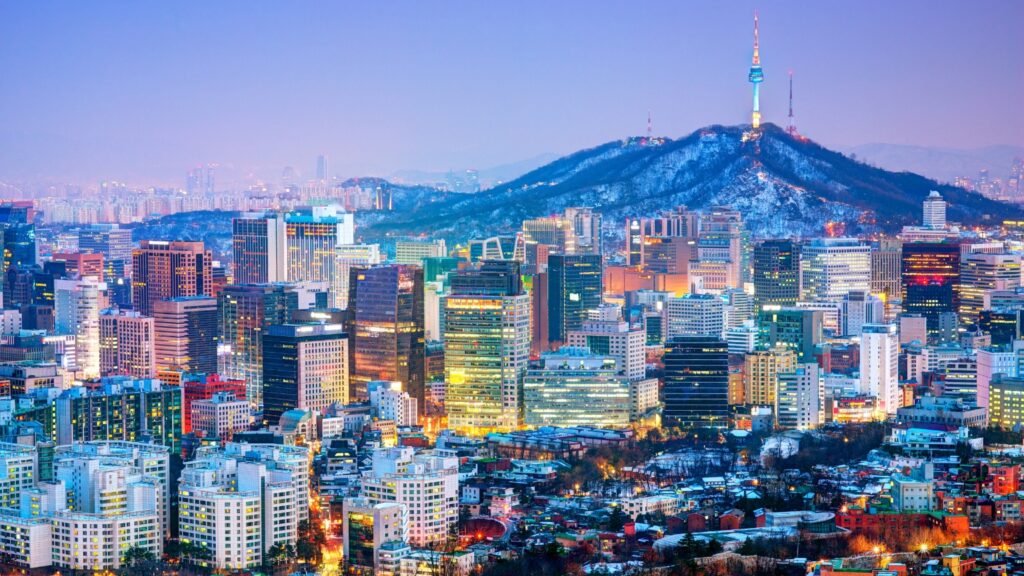In an era marked by rapid economic shifts and technological advancements, certain cities have emerged as beacons of prosperity and innovation. As we venture further into the 21st century, these metropolises not only reflect economic might but also serve as hubs for cultural diversity, cutting-edge technology, and political influence.
This exploration delves into the top 10 richest cities globally in 2024, ranked by their Gross Domestic Product (GDP).
10. Shanghai, China – $516.5 Billion

Shanghai stands as a testament to China’s economic ascent, boasting a skyline that merges futuristic skyscrapers with historical shikumen. Its port, the largest in the world by cargo tonnage, serves as a vital artery for global trade, symbolising China’s significant role in international commerce.
The city’s economic prowess is further highlighted by its thriving financial sector, cantered around the Lujiazui district, often dubbed “China’s Wall Street.” Beyond economics, Shanghai’s cultural scene is a fusion of the traditional and the modern, with its bustling Bund and innovative art galleries capturing the city’s dynamic spirit.
9. Moscow, Russia – $529.1 Billion

Moscow, the heart of Russia, is a city where opulent historical monuments coexist with the sleek skyscrapers of the Moscow International Business Center. As the epicentre of Russian politics and economy, Moscow’s wealth is significantly buoyed by its status as a global energy giant, with the city’s billionaires often hailing from the sectors of oil, gas, and minerals. The city’s cultural heritage, with landmarks like the Kremlin and Red Square, underscores its historical depth, while its burgeoning technology sector hints at a future beyond its energy-dependent economy.
Moscow is also renowned for its extensive and efficient transportation network, particularly the Moscow Metro. The Metro is not only a vital part of the city’s infrastructure, carrying millions of passengers daily, but it is also an architectural marvel, known for its ornate decorations and historically significant designs.
8. Chicago, USA – $534.6 Billion

Chicago’s economic landscape is as varied as its cultural tapestry, with industries ranging from finance to pharmaceuticals calling the city home. Its strategic location along the Great Lakes has established it as a key transportation and logistics hub, contributing to its economic diversity.
Architecturally, Chicago is a pioneer, home to the Willis Tower and the neo-Gothic Tribune Tower, reflecting the city’s innovative spirit. Culturally, it’s renowned for its influential blues music, deep-dish pizza and vibrant arts scene, including the Art Institute of Chicago and numerous theatres.
7. Osaka, Japan – $654.8 Billion

Osaka, Japan’s culinary capital, is renowned for its dynamic street food scene and the iconic Dotonbori district, a testament to its thriving gastronomy. The city’s economy benefits from a diverse industrial base, including manufacturing giants and a burgeoning tech sector.
Osaka’s approach to urban development, blending modern infrastructure with green spaces, exemplifies its forward-thinking attitude. The city is also a focal point for international events, highlighted by its selection to host the 2025 World Expo, further cementing its global economic stature.
6. Paris, France – $669.2 Billion

Paris, the epitome of elegance and culture, is not just the world’s fashion capital but also a significant economic centre. Its GDP is bolstered by luxury goods, aerospace and a vibrant tech startup ecosystem, dubbed “La French Tech.”
Paris’ architectural marvels, like the Eiffel Tower and Notre Dame, contribute to its standing as one of the most visited cities globally, enhancing its economic profile through tourism. The city’s commitment to sustainability and innovation is evident in projects like the Grand Paris Express, set to transform public transportation and urban mobility.
5. London, United Kingdom – $731.2 Billion

London’s historical significance as a global trading hub has evolved into its modern status as a financial nucleus, hosting the London Stock Exchange and numerous multinational corporations. London’s financial sector processes over 37% of the world’s foreign exchange transactions, amounting to an average of $2.7 trillion per day. This highlights London’s unmatched role in the global financial landscape.
The city’s cosmopolitan fabric is enriched by a myriad of cultures, reflected in its diverse culinary scene, festivals, and neighbourhoods. London’s commitment to innovation is also evident in the tech sector, particularly in Fintech, where it’s a global leader. The city’s rich literary history, with figures like Shakespeare and Dickens, adds to its cultural depth, making it a city where history and modernity converge.
4. Seoul, South Korea – $779.3 Billion

Seoul’s transformation into a global leader in technology and design is mirrored in its cityscape, which blends ancient palaces with cutting-edge architecture. The city is home to tech behemoths like Samsung, driving innovation in electronics, robotics, and digital media. The city boasts one of the world’s highest Internet penetration rates, with over 97% of households connected to ultra-high-speed Internet, facilitating Seoul’s smart city initiatives and digital economy.
Seoul’s cultural influence extends globally through K-pop and Korean cinema, showcasing its soft power. The city’s dedication to sustainability and smart city initiatives, including extensive green spaces and efficient public transportation, highlights its role as a model for future urban living.
3. Los Angeles, USA – $789.7 Billion

Los Angeles, synonymous with Hollywood and the entertainment industry, boasts an economy as diverse as its population. LA produces more than 80% of the world’s total entertainment content, including film, television, and digital media. This underscores the city’s global influence in shaping cultural trends and entertainment.
Beyond film and television, LA is a centre for aerospace, fashion, and technology. The city’s cultural landscape is vast, from the iconic Hollywood sign to the Getty Center and vibrant neighbourhoods like Koreatown and Venice Beach. Los Angeles’s role in global media and culture is unparalleled, making it a unique blend of creativity, innovation and economic power.
2. New York, USA – $1.21 Trillion

New York City’s stature as a financial behemoth is anchored by Wall Street and the New York Stock Exchange. Its vibrant arts scene, from Broadway to the Metropolitan Museum of Art and a melting pot of cultures, make it a microcosm of global diversity. Indeed, New York is the most linguistically diverse city worldwide, with over 800 languages spoken across the city.
The city’s resilience and innovation are evident in its skyline, constantly evolving with landmarks like One World Trade Center. New York’s influence in fashion, media and culture cements its status as a city at the forefront of global trends and economic power.
1. Tokyo, Japan – $1.52 Trillion

Tokyo stands at the forefront of the future, a city where ancient traditions interweave with the pulse of cutting-edge technology. As the world’s economic leader, its economy thrives on dominating industries like electronics, automotive and robotics, underscoring its position as a global hub for innovation.
The cityscape, a canvas of serene temples beside towering skyscrapers, invites a deep dive into Japan’s rich history alongside its modern achievements. Tokyo’s commitment to sustainability and technological advancement is evident in its urban planning and public transportation systems, recognised among the most efficient and environmentally friendly globally.
The city’s culinary scene, celebrated for having the highest number of Michelin stars, offers a taste of its commitment to excellence, tradition, and innovation. With ongoing initiatives in smart city developments and an emphasis on green technology, Tokyo is not just responding to the challenges of today but is also shaping the future of urban living worldwide.
Final Thoughts
The richest cities in the world offer more than just economic statistics; they are vibrant communities where culture, innovation and diversity thrive. These urban centres are not only engines of global finance but also custodians of history and culture, playing pivotal roles in shaping our global future. Their continued evolution will undoubtedly offer insights into the possibilities of urban development, sustainability and global interconnectedness as we move deeper into the 21st century.




